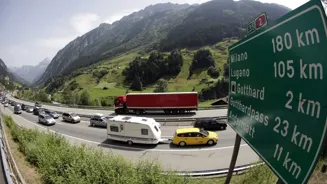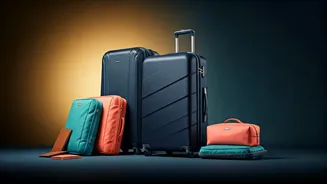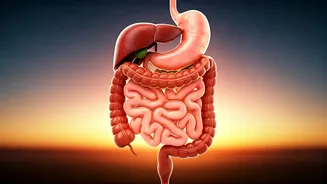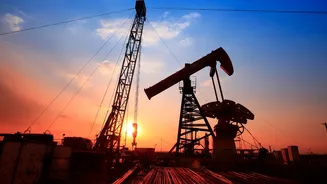“Until a few years ago, the increase in holiday traffic was limited to a few weekends a year,” said Simon Stadler, a centrist lawmaker from the canton of Uri. “Now it’s a whole month during which the traffic spreads across our state roads.”
Stadler is among advocates from the left and right of the political spectrum in Bern who want to deploy extra fees to smooth flows at the worst hot spot around the Gotthard Road Tunnel, in the area of central Switzerland that he represents.
The matter is far from the top of the political agenda as Switzerland contends with US President Donald Trump’s tariffs of 39%, but it’s an emotive issue all the same. What might appear a local traffic matter ultimately amounts to another front in the debate over mass tourism and its costs and benefits.
For the Swiss, whose folk hero William Tell is said to have defied foreign tyranny in Uri, how to handle invasive drivers who treat their soaring mountains and pastoral landscape as mere obstacles to overcome is a question that could test relations with the surrounding European Union.
More than five million cars and 900,000 trucks a year use the 16.9 kilometer (10.5-mile) long tunnel under the Gotthard Massif. An engineering feat that was the longest of its kind when completed in 1980, it has only single lanes in each direction, creating one of Europe’s worst bottlenecks.
Also read | US visa dropbox interview appointments cancelled in India for August-Sept: Here’s why
Such infrastructure intersects the Alps from France to Austria, taming a range whose crossings were once associated with the military accomplishments of Hannibal and Napoleon Bonaparte. But such achievements for transport create potential pinch points.
A 17-kilometer tailback at the Gotthard’s north entrance on July 26 was one of many this summer. Such jams test emergency services as traffic spills onto local roads, inflicting noise and fumes on villages such as Gurtnellen, just 7 kilometers from that portal. With fewer than 500 people, it has lost a third of residents over the past three decades.
“Quality of life quickly deteriorates,” said Verena Tresch-Arnold, Gurtnellen’s mayor. “You can’t go outside anymore and it’s harder to breathe because the smell of tires hangs in the air.”
Dorothea Baumann, a 61-year-old life coach living beside one of its clogged up roads, has taken to wearing earplugs when in the garden or trying to sleep at night.
Austria knows such problems only too well. Its Alpine highway over the Brenner Pass sees more than three times as much traffic as the Gotthard does. Protests are routine, and a local mayor has threatened to block it if the traffic isn’t handled differently.
Also read | Seven cities to visit in Russia that are scenic and safe
Unlike Switzerland’s approach of collecting a yearly fee of 40 Swiss francs ($50) from everyone using its highways, Austria is more targeted, allowing foreigners to pay national tolls for as little as one day. Each use of the Brenner adds another €12 ($14) to the holiday bill. Traffic jams still occur, suggesting that pricing alone isn’t the issue.
Stadler’s proposal aims to smooth traffic flows. He would charge vehicle owners extra when they transit Switzerland without an overnight stay, using cameras that register license plates at the border, and employing dynamic pricing based on time of day or season.
The measure might particularly affect drivers crossing from Germany toward destinations in Italy or beyond. For example, traveling from Basel in the north to Chiasso on the southern frontier via the Gotthard tunnel is a 289-kilometer journey. Assuming no traffic and without breaks, it can take under four hours.
The impact on foreigners could be problematic for Switzerland’s relationship with the EU, which relies on agreements including rules for freight traffic and trade. A renewed deal was finalized last year, though it still needs approval from Swiss voters.
“Such measures must be proportionate and coherent, and in this respect, this proposal raises major concerns,” said Astrid Epiney, a law professor at the University of Fribourg. “The other question is whether it’s a smart political move, and I doubt that it is.”
Mountain traffic has been a contentious issue for decades. In 1994, Swiss voters accepted a proposal to radically shift trans-Alpine goods transport from roads onto railways. Those demands remain unfulfilled.
Earlier this year, lawmakers rejected a road toll for the Gotthard by a single vote, despite polls showing broad voter support. That’s one reason why Stadler might push for a plebiscite if the new effort in parliament fails.
Another solution to ease congestion would be to increase capacity. While work has begun on a second Gotthard tunnel to renovate the old one and create hard shoulders for each road lane, such is the controversy over Alpine traffic that it would take a constitutional amendment backed by voters to allow the vehicle flow to double.
It may be years before the proposal from Stadler and his colleagues sees the light of day, if it ever does. But among potential targets, there’s some understanding.
Monique van Bruggen-de Ruyter, a 61-year-old Dutch hairdresser who recently forked out the fee for a Swiss highway toll, says Switzerland can do as it likes.
"If they want to harass tourists even more, they should definitely do so," she said. "There’s no way around it."
A regular Gotthard user, 70-year-old Klaus Meilick from near Stuttgart in southern Germany, reckons an extra charge wouldn’t deter him when he takes his campervan to Italy.
"I'd still take the route," he said. "If you want to cross the country, you have to pay the price."














